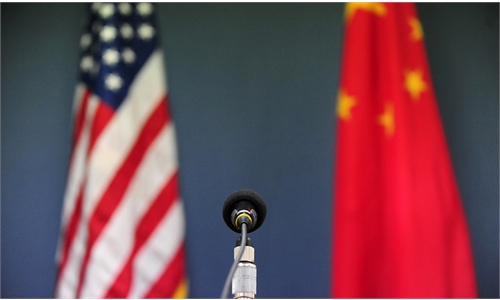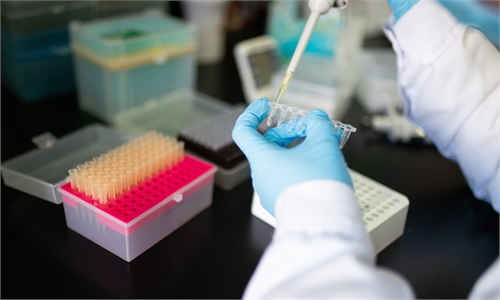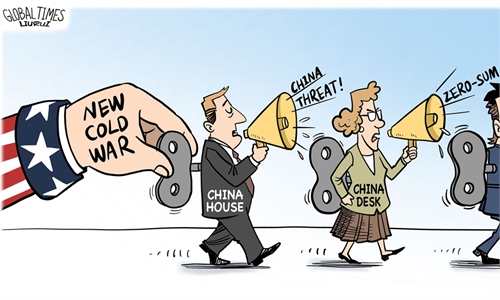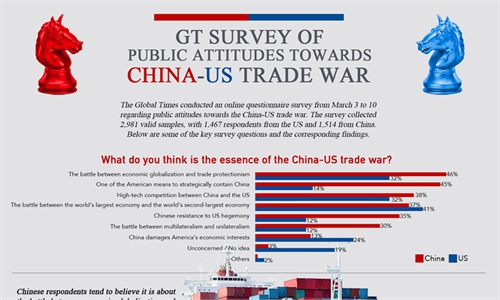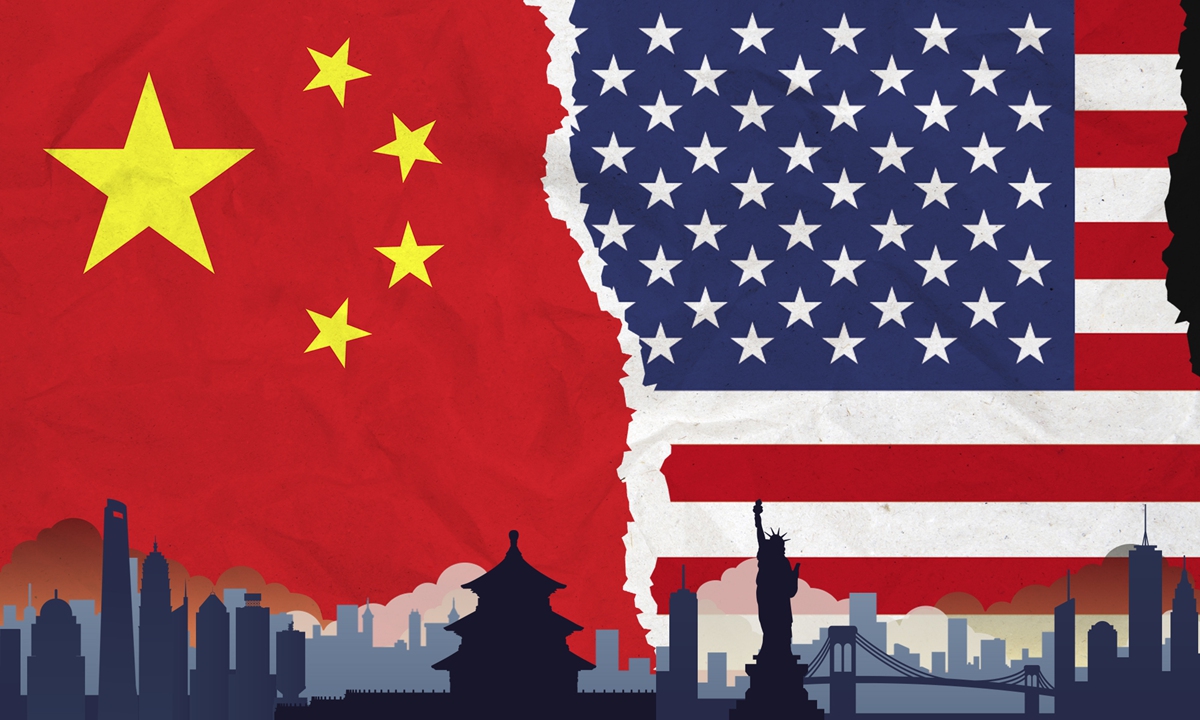
China-US Graphic: GT
Over the past weekend, the world has witnessed some complex signals in China-US ties. TikTok CEO Shou Zi Chew was grilled by US lawmakers for roughly five hours, while renowned US entrepreneurs like Apple CEO Tim Cook were warmly welcomed by Chinese authorities and netizens. The US' China Coordinator Rick Waters visited China, reportedly the first visit to China by a senior US diplomat since December 2022, which some media saw as a preparation for US Secretary of State Antony Blinken's China visit.Are China-US ties picking up, or getting worse? Chinese experts hesitate to give a direct answer to this question, noting that China still needs to wait and see how the US deals with some vital issues, such as Taiwan regional leader Tsai Ing-wen's transit in the US later this week.
Waters met with staff at the US Embassy and Consulate Generals in Hong Kong and Shanghai, officials from the Chinese Foreign Ministry, as well as some representatives from business and academic circles, the Global Times learned from some sources close to the matter.
According to a statement released by the Shanghai Institutes for International Studies (SIIS) on WeChat, Waters talked with experts from the institute on March 22 and exchanged opinions with them on several issues including China-US ties.
Citing experts, South China Morning Post depicted Waters' visit as a "working level communication" between the two countries that could also pave the way for a rearranged visit by Blinken.
However, Wu Xinbo, the dean of the Institute of International Studies at Fudan University, remained cautious, and said he did not think Waters' visit could play any role in helping promote Blinken's China visit.
Waters' visit is more of a normal working arrangement. Given the current atmosphere of China-US ties, especially some of Blinken's unfriendly words and actions toward China recently, the visit will do little to help finalize any relevant issues for Blinken's China visit, nor will it have any effect on stalled bilateral ties, Wu told the Global Times on Monday.
Rather than procedural communications, China is currently paying more attention to how the US reacts to vital issues concerning China-US ties, such as the planned transit of Taiwan regional leader Tsai Ing-wen in the US later this week and the "balloon incident," according to Wu.
Blinken in early February postponed his reported trip to China in response to the flying of what Washington labeled a "spy balloon" over the US, saying it "created the conditions that undermine the purpose of the trip." Since then, confrontations between Beijing and Washington have grown increasingly bitter, with both sides sparring over Taiwan island, supply chain issues, China's partnership with Russia, as well as its neutral position on the Ukraine war.
The Taiwan regional government confirmed that Tsai would transit the US en route to Central America, and would then head to New York on March 29 before visiting Guatemala and Belize. She will then stop in California before returning to Taiwan on April 7. The regional government refused to give any comment on whether a highly controversial meeting between Tsai and US House Speaker Kevin McCarthy will take place.
China has lodged a solemn representation to the US concerning Tsai' transit in the US and the possible meeting with McCarthy. The Chinese Foreign Ministry said on March 21 that China firmly opposes any form of official interaction between Taiwan and the US.
Earlier in March, US President Joe Biden said he would soon speak with Chinese President Xi Jinping over the phone, but no timeline was given. On Monday, US National Security Council spokesman John Kirby said that a potential trip to China by Treasury Secretary Janet Yellen and Commerce Secretary Gina Raimondo was in the works, according to South China Morning Post.
However, Chinese experts warned of the US' old habit of often contradicting itself.
As a whole, the US has sent very chaotic signals regarding China-US ties. It stresses communication in words but continues to strengthen contradictions in actual implementation, Li Haidong, a professor at the China Foreign Affairs University, told the Global Times on Monday.
China has been consistent in its policies and actions concerning the US, which was clearly demonstrated by the warm welcome it gave to US business leaders and economic officials at the China Development Forum (CDF) on the weekend. But if the US cannot make a positive response while China calls for a responsible and constructive attitude toward bilateral ties, the future direction of the China-US relationship will be a source of concern, experts said.
The US firms were a strong presence at the CDF despite a rising tech rivalry between the world's two largest economies. Prominent US business leaders such as Apple CEO Tim Cook, billionaire investor Ray Dalio, Cristiano Amon, CEO of US chip giant Qualcomm, Albert Bourla, CEO of Pfizer and Jon Moeller, CEO of consumer goods giant Procter & Gamble, all attended.
